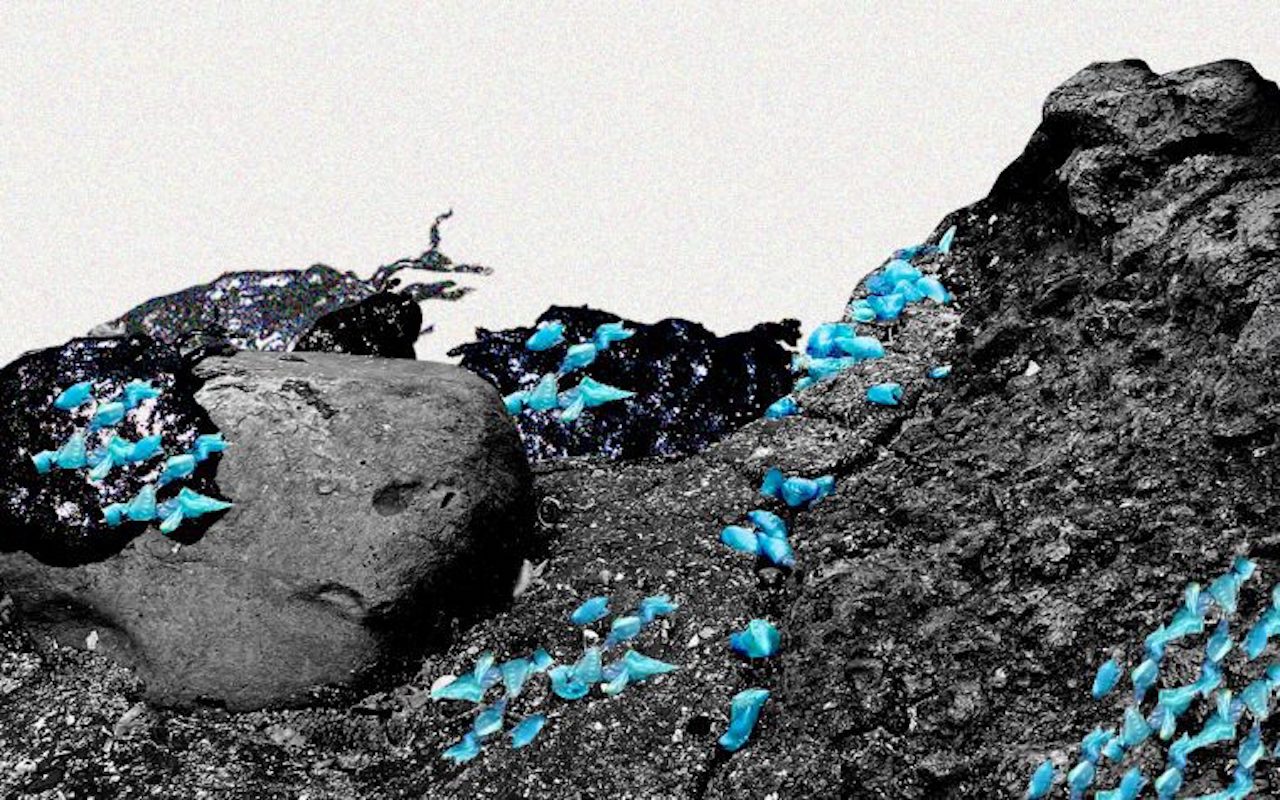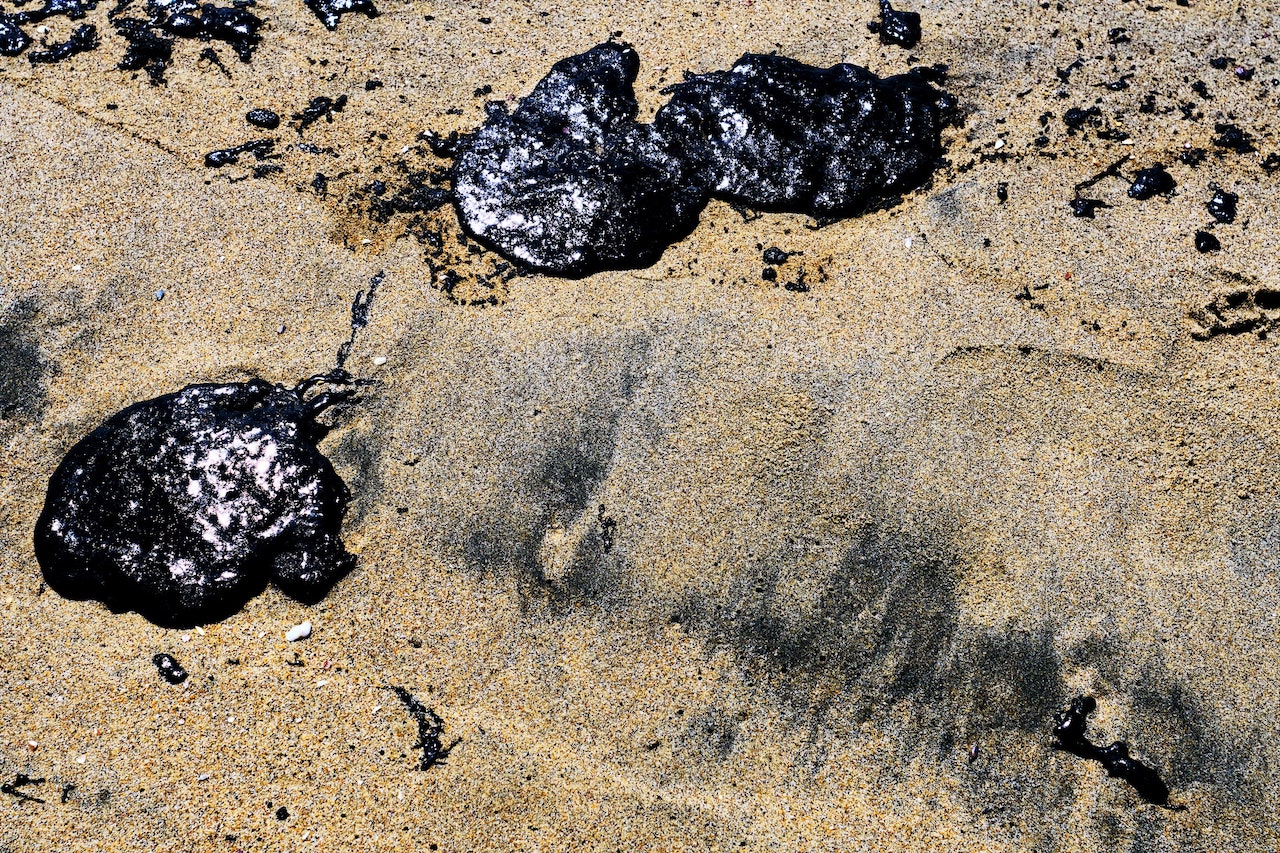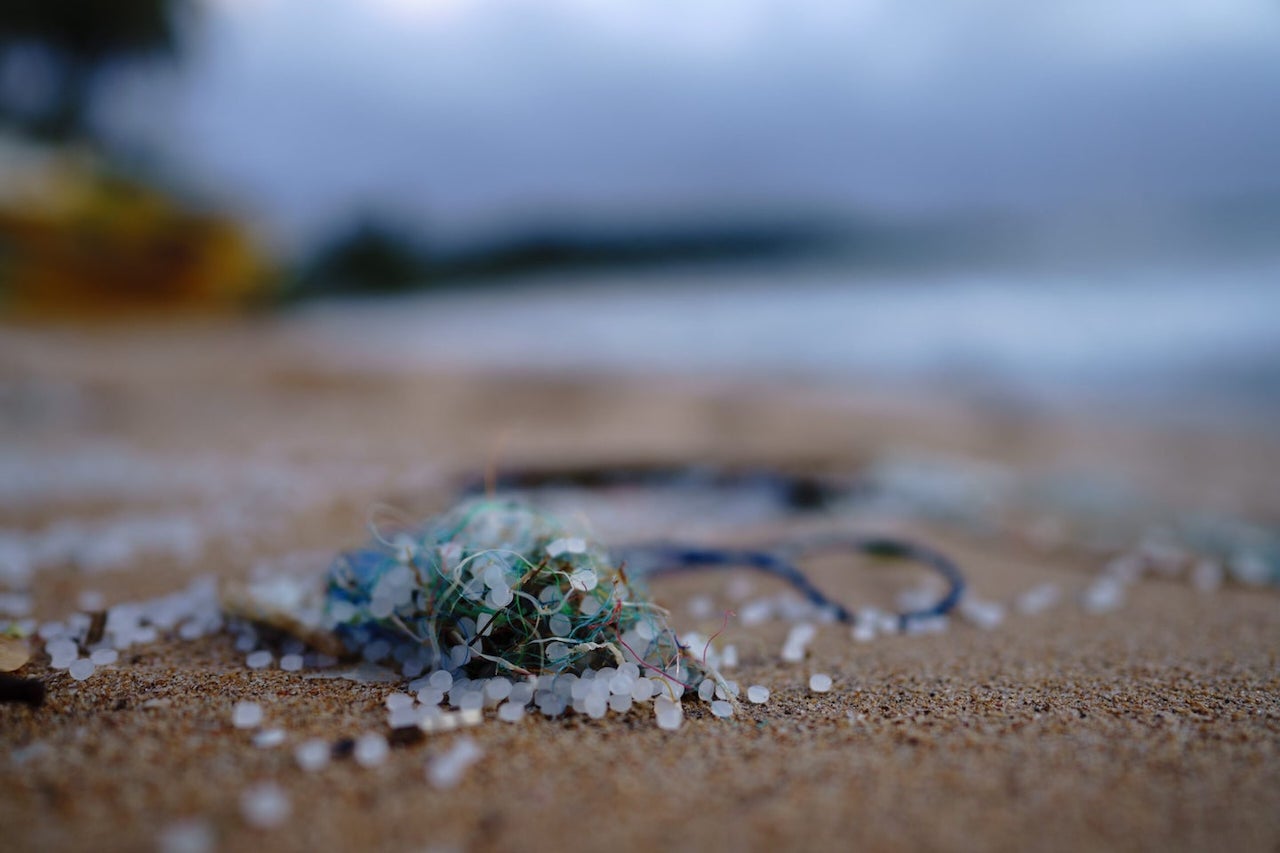Plastitar – New Type of Pollution Discovered on Canary Islands’ Beaches
A team of researchers found plastitar (a term coined for mix of tar and microplastics) when they were combing the shores of Tenerife in the Canaries

The world is making efforts to combat ocean pollution caused by microplastics and oil spillage. However, a new type of pollution is discovered by a team of researchers in the Canary Islands. In a new study, the researchers have termed this new ocean plastic pollution as plastitar. As per the scientists, this plastitar is consistently washing up around the islands’ shores. This new type of pollution consists of tar balls with tiny colored fragments of microplastics.
The researchers found this pollution conglomerate around two years ago across the Canary Islands. In the recently published study, it was explained how they found this tacky substance sticking on almost half of the rocks on Tenerife’s Playa Grande. Later, they discovered the same substance in the areas of El Hierro and Lanzarote in the Atlantic island chain.
The formations of plastitar appear like squishy, big black balls littered with hued plastic sprinkles. This formation takes place when oil spills washing up on the shore. The oil spillage eventually forms a tarball that sticks to the rocky shores. After some time, these itty plastic pieces get permanently wedged into the hardened tar cervices.

This shows how marine plastic debris is accruing as a more permanent formation. The impact of plastic on human health is not clearly understood yet. However, microplastics are everywhere! You can find them in drinking water, air, food, and even human blood. Certain potential risks of microplastic exposure are neurotoxicity, metabolic disturbances, and increased cancer risk. In oceans, the pollution can affect marine life by impacting both the digestive and cognitive functions.
So, it’s pretty clear that tar and oil spills are harmful to wildlife as they can physically harm animals or leave pollution and chemicals on breeding grounds and habitats for several years. This proves plastitar to be a quite scary combination for the health of animals and humans. Since marine creatures consume plastics accidentally, the consumption of plastitar may lead to “intestinal blockage, oxidative stress, internal injuries, inflammatory responses, and other issues,” including death.

Even after so many harmful plastic pollution impacts, the world is still producing double the plastic as it was around two decades ago, and only 9 percent of the produced plastic undergoes recycling. Moreover, over 3 million tons of microplastics are released into the environment every year. Around 5 million larger plastic chunks break down into microplastics.
So, it shows how much plastic the world is producing every year. But there is a little percentage of sustainability efforts. We need to find a solution to this problem very soon, otherwise, the results will be drastic for us and the environment.
Via: The Guardian


